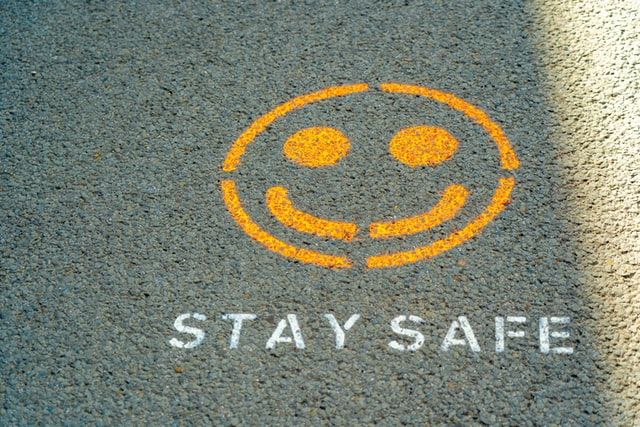As more and more employees are heading back to the office, it becomes essential to question the safety measures in place.
Indeed, we can’t ignore the remaining risks of the ongoing coronavirus pandemic. While health figures do not reveal the same crisis situation we experienced in 2020, it would be foolish to pretend that COVID-19 is already behind us.
So, whether you are employed or self-employed, you want to make sure that you are not exposed to a potential virus threat. Life has almost gone back to normal, which means that self-isolation is not a solution anymore. What can you do to reduce the presence of the COVID-19 virus on the premises?

Here are some of the most popular strategies to keep teams safe.
Testing, testing, and testing
Many Americans turn to at-home COVID tests to keep track of their health. Over the counter tests are available for $7 to $15 a piece, making them easily accessible for those concerned about irregular symptoms. Additionally, free tests are available in some states, such as Ohio and New Hampshire.
No industry sector has imposed mandatory testing. However, many small businesses encourage their team to test frequently if they need to be in contact with others.
Vaccines are no joke
The COVID-19 vaccine is a divisive topic. Over half of the US population is fully vaccinated. However, many individuals resist the call for the vaccine. As a result, companies have been creative in encouraging their teams to get vaccinated. Some firms offer incentives such as cash bonuses to drive up the vaccination numbers.
Besides, many public-facing firms have deliberately chosen to make vaccination mandatory for their staff. While 29% of the workforce opposes the move, they risk facing dramatic professional consequences if they reject the vaccine. Some companies are forgiving and ask unvaccinated staff to work from home. However, employees may face immediate termination when remote work isn’t a valuable option.

Social Distancing
Despite vaccines providing high levels of protection against serious illness and death, you can still catch the virus if you come into close contact with a carrier, so it’s best to keep your distance as normal. This means desks should be separated, communal areas should be off-limits, screens should be in place in areas where social distancing is not possible, break times should be spread out and meetings should be held virtually. You might be tempted to hold meetings together in one room, but this is exactly the sort of situation the virus loves. If you’re not confident holding virtual meetings, consider taking a virtual presentation skills training course to find the best ways of engaging your colleagues. Sitting at your desk all day can be boring, so a well-presented virtual meeting can really make a difference!
Decontamination of the premises
Businesses are seeking professional biohazard services to decontaminate areas suspected of having been in contact with COVID cases. Professional cleanup companies are specially trained to remove biohazard risks, including the presence of germs and microdroplets in the office or building. As coronavirus is an airborne pathogen that can travel through droplets, it can be found on all surfaces long after a case has been reported. Desks, walls, floors, and business items need to be sanitized for the safety of the team. Workplaces also tend to provide safety kits from sites like BIG Safety which include masks and PPE that can be used on the premises.
Remote work arrangements
Despite being vaccinated, you could still be at risk if you have a weak immune system. Individuals who are immunodeficient or undergoing medical treatments may prefer to stay at home for their safety. Thankfully, most professionals are already used to working from home and have developed a productive setup. It should be an easy conversation with your employer. Moreover, working from home often comes up with challenges like communication interruption, misaligned team performance, and cybersecurity risk. For the convenience and safety of the employees, businesses tend to hire software development companies like webisoft to build dedicated software for the smooth workflow and data security of the organization.
However, WFH may not be everyone’s cup of tea. It’s only natural that when employees are working from home, there tends to be a dip in productivity. Especially because of the looming pandemic, there could be a decrease in morale due to the various mental health issues that lockdowns and quarantines may bring. To combat this in their remote workforce, employers can look to organize team building games on zoom or other virtual events that can boost morale and liven up employees’ work lives.
It is important to note that pregnant women or those who have been forced to delay the vaccine for any other reason may prefer to maintain their home office routine for the time being.
Keeping COVID-19 risks low is an everyday challenge for businesses. Thankfully, many companies have come up with strategies that can make risks manageable and protect their employees.
If you are starting a role in a new company, it is worth asking them about their COVID safety measures.
1 Comment on How Do Businesses Reduce COVID Risks On Premises?
Comments are closed.
Very informative article.
i am happy to do remote work but we know once the situation will get settled, sooner or later offices are going to open.
let’s hope for the best